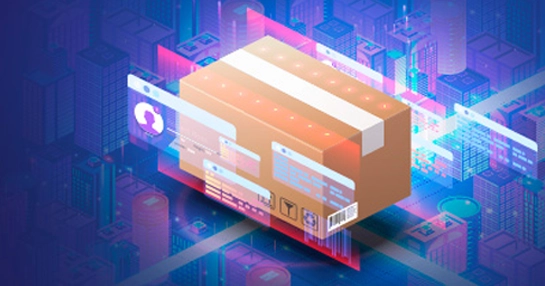What is Supply Chain Management (SCM) Software?
Supply chain management (SCM) software solutions facilitate the management of supply chain activities and resources to meet customer demand, efficiently and cost-effectively. The solutions streamline the processes of tracking and managing the flow of materials and products from sourcing to the warehouse and/or factory, and ultimately to the end-customer. The solutions help enable greater supply chain visibility, automation, and sustainability – as well as a company’s agility, resiliency and competitive advantage. The term supply chain management is broadly used and can encompass the categories of supply chain planning, supply chain execution, and procurement.
What are the Top Benefits or Values of Using Supply Chain Management (SCM) Solutions?
The modern business world is operating at increasingly high speeds and to increasingly higher demands. Customers have significantly higher expectations today than they did just a decade ago. And there is growing volatility, shortages and disruption in expansive and complex business networks and supply chains.
As a result, there is little room for error if a business expects to remain competitive. Supply chain management – and related control tower and supply chain collaboration solutions – enable organizations manage supply to meet demand by furthering automation, building resiliency, and accelerating the speed of the supply chain.
The best SCM software solutions help improve data analysis, support decision-making, further automation, and improve the ability and agility of a business in adapting to disruptions and changes in market conditions. These advanced solutions are an integral part of a best-in-class global supply chains and are integral to achieving corporate objectives and delivering customer satisfaction.
What are the Advantages/Disadvantages of On-Premises Versus Cloud SCM Software Solutions?
Most larger organizations have an IT or technology posture that determines what type of solution framework and delivery they prefer. For those companies that do not necessarily have a corporate-wide policy, or have a flexible or hybrid approach, may evaluate the advantages and disadvantages of on-premises, SaaS, cloud and hybrid-cloud solutions:
Cloud-Based
The primary benefits of cloud-based SCM software solutions are the cost, convenience, and speed at which such a solution can be deployed – as well as the ease of solution maintenance and upgrades.
Hybrid-Cloud
With a hybrid-cloud approach, an organization can add cloud-based supply chain management capabilities without having to change or replace their existing technology infrastructure. The hybrid-cloud-based SCM solution can leverage and elevate existing systems, working in tandem with existing ERPs and data sources to provide real-time visibility and control.
On-Premises
Although cloud and hybrid cloud solutions are increasingly the standard in new solution adoption across industries, some larger companies in certain industries still may consider on-premises solutions, typically for the perceived level of control and security when SCM software and data are based on their on-site servers.
What are the Most Important SCM Solution Capabilities?
Supply chain management solutions have been evolving steadily over the past few years, with dozens of competitive solutions available in the market depending on a company’s particular needs. It is important to remember that the term supply chain management covers a broad range of solutions with often very differing areas of focus and strength. The best SCM software solutions may include supply chain planning system (e.g., S&OP, integrated business planning), supply chain execution (e.g., inventory and warehouse management systems, transportation management systems), or procurement (e.g., sourcing, spend analysis) capabilities. Very few solution providers currently offer a full suite of capabilities covering all areas of supply chain management. The best SCM software solutions offer critical capabilities including:
Real-Time Data: The capability to connect seamlessly to a wide range of internal and external data sources to ensure real-time (or as close to real-time as possible) access to data for ready access by the SCM solution and professionals. Additionally, they ensure quick and effective information exchange and collaboration with suppliers, trading partners and logistics providers.
Configurable Workflow Management: Capabilities that empower customers to configure the solution/system according to their own defined processes and workflows. This also includes capabilities to support a full range of processes and related activities.
Artificial Intelligence (AI): Artificial Intelligence (AI) enables organizations to speed and support professional decision making by leveraging AI for predictive analytics and recommendations for ‘next best actions’ for a given process, problem, or disruption. Best-in-class solution providers are imbedding AI and machine learning (ML) capabilities into their solutions and SCM processes.
Dynamic Exception Management: Capabilities including robust and customizable dashboards with KPIs and smart alerts to help flag, monitor and address exceptions. This enables the supply chain team to focus on their most critical issues and respond more quickly to the changing environment.
How is Artificial Intelligence (AI) Used in Supply Chain Management Solutions?
Artificial intelligence (AI) will play an increasingly critical role in the operations of corporations and in the day-to-day lives of professionals – helping them keep up with the flow of data – and turn that data into relevant, actionable intelligence and insights.
Best-in-class solution providers are imbedding AI into their solutions and SCM processes. This infused AI can take the shape of curated insights, smart alerts to exceptions, and workspace/messenger apps that provide relevant context. AI can enhance human decision-making, automate routine or repetitive tasks to reduce errors, and increase overall supply chain performance.
Here are a few examples of the applications of AI in SCM:
- Supporting processing and correlation of data to provide real-time supply chain visibility
- Support more accurate demand, capacity and forecast planning
- Simulate “what if” scenarios for demand, capacity, and forecast changes enhancing ability to proactively plan for a spectrum of situations
- Power ‘smart alerts’ to warn of potential disruptions and exceptions based on customized tolerances
- Power more accurate and detailed should-cost estimates and cost breakdowns
- Support professionals in complex analysis and decision-making with AI-recommendations for action
How can You Best Measure the Impact or ROI on Supply Chain Management (SCM) Solutions?
Measuring the performance or ROI on your supply chain management solution should be a very individually designed undertaking for each organization. The value or ROI of the solution for your organization should be dictated by your organizational challenges and objectives/goals.
What are your specific supply chain objectives?
- Mitigate disruptions/manage supply chain risk
- Streamline and expedite processes and workflows
- Resolve bottlenecks in operations/production
- Improve collaboration and communication internally and/or with suppliers and partners
- Drive greater automation of the supply chain
- Integrate Artificial Intelligence (AI) to improve productivity
Setting baseline key performance indicators (KPIs) around your core objectives and measuring progress over time is a foundational method for measuring ROI and success.
What is the Role Of SCM in Supply Chain Convergence?
Supply chain technologies have continually evolved over the last few decades from point solutions for individual challenges or business processes – to today’s larger integrated portfolios with varying areas of focus and strength. Analysts and supply chain leaders recognize three areas of SCM software solutions:
- Supply chain planning with solutions for demand planning, supply planning and S&OP, etc.
- Supply chain execution including solutions for warehouse management, transportation management, global trade management, etc.
- Procurement that may include sourcing, contract management, spend analysis, e-invoicing and payment, etc.
Technologies continue to evolve, and supply chain technology experts and vendors are increasingly talking about supply chain technology convergence. That is, the complete integration of supply chain processes and data across planning, execution and procurement – in a single system or platform. Breaking down process and data silos to build a single, unified, end-to-end supply chain platform.
Some analysts and supply chain business leaders are extending this concept of supply chain convergence, seeing a parallel effort to digitally connect with their partner and supplier networks or ecosystems. This future-oriented view of the supply chain is being labeled by Gartner and others as Multi-tier Multi-Enterprise Supply Chain Business Network (MESCBN).
Although the supply chain management technology market encompasses numerous vendors – from point solution providers to vertical industry focused vendors and platform/portfolio providers – there are a select few companies with the vision of supply chain convergence and MESCBN – and the actual foundation and broad applications charting to that vision.
How can SCM Solutions Drive Supply Chain Orchestration?
The three main flows of supply chain management remain constant, (1) the physical goods flow, (2) the information flow, and (3) the capital or financial flow.
In many cases, breakdowns in the information flow can cause breakdowns of the physical goods flow. On the other hand, improvements in the information flow will help to smooth the flow of physical goods and reduce the expense of the capital flow.
Investments in supply chain management solutions (or transformations or digitalization) is all about improving and optimizing supply chain flow.
Advances in technology – from AI to Blockchain to Cloud – and tighter integration of these solutions and thus data, makes even greater orchestration of the supply chain possible.
By harnessing these technologies – and enabling greater visibility, intelligence and collaboration both internally and with the extended supply chain ecosystem, SCM technology is the leading enabler and driver of supply chain orchestration.
Modern Supply Chain Issues:
- Supply Chain Resilience
- Sustainability
- Circular Supply Chain
- New Global Sourcing Strategy
- Diversity and Inclusion











